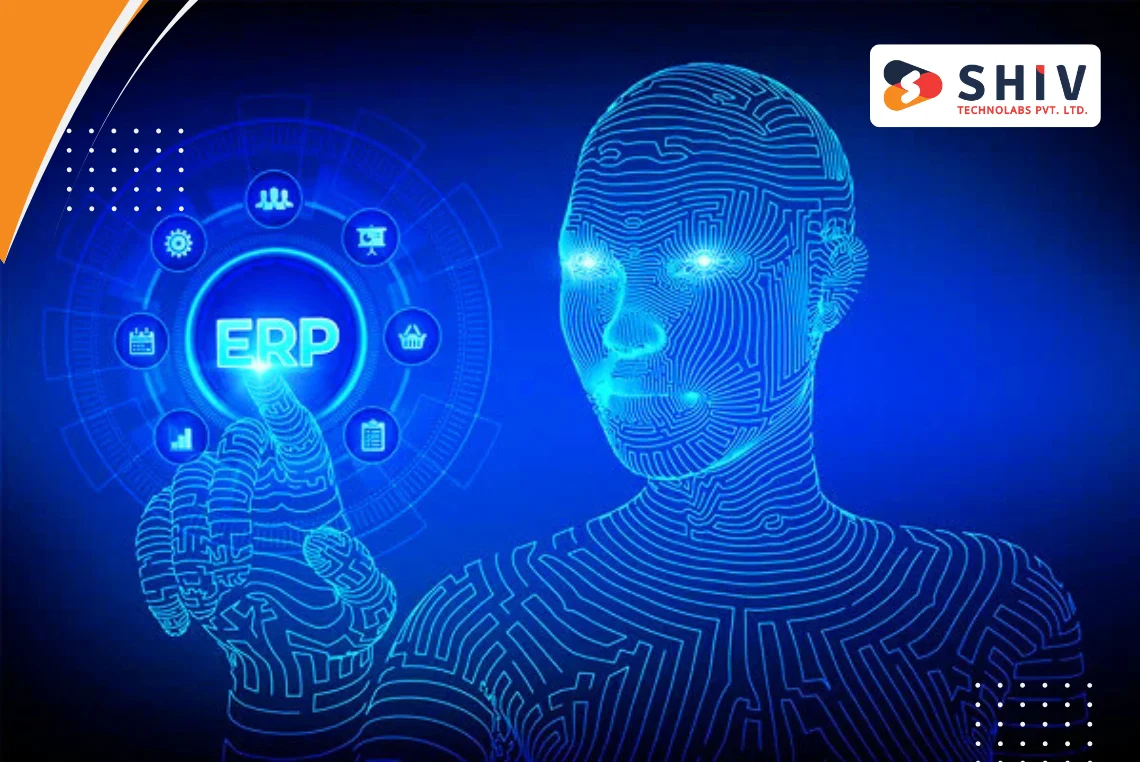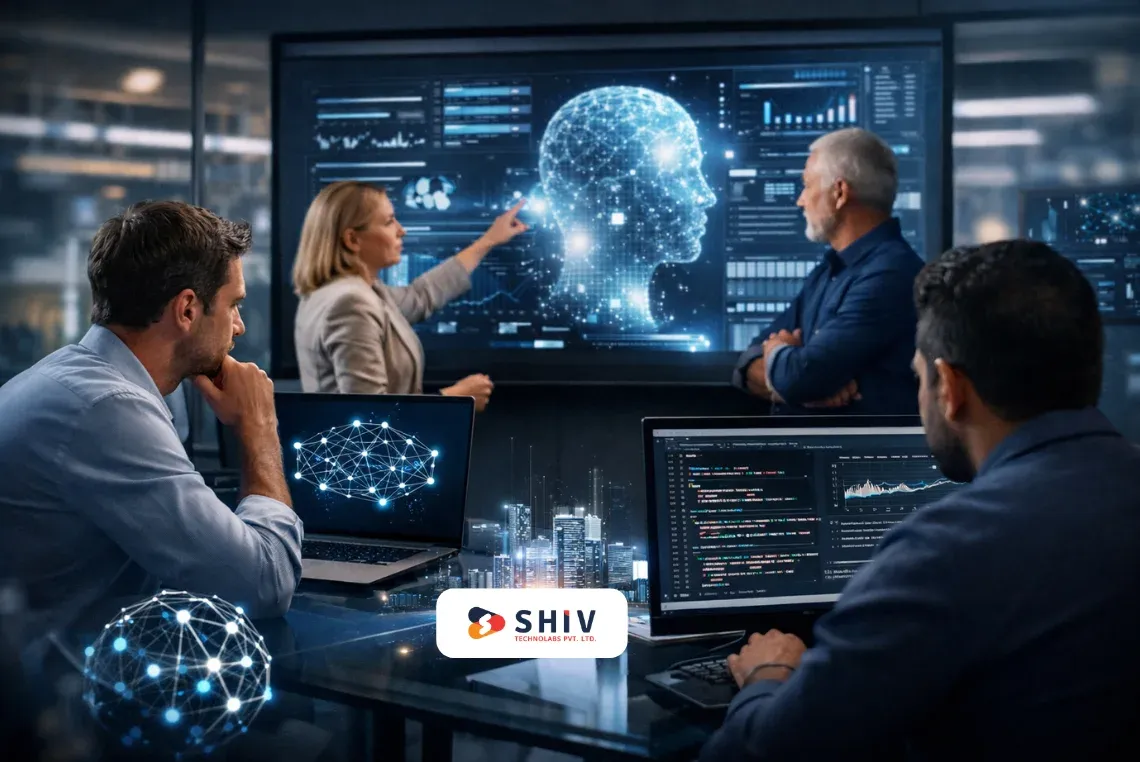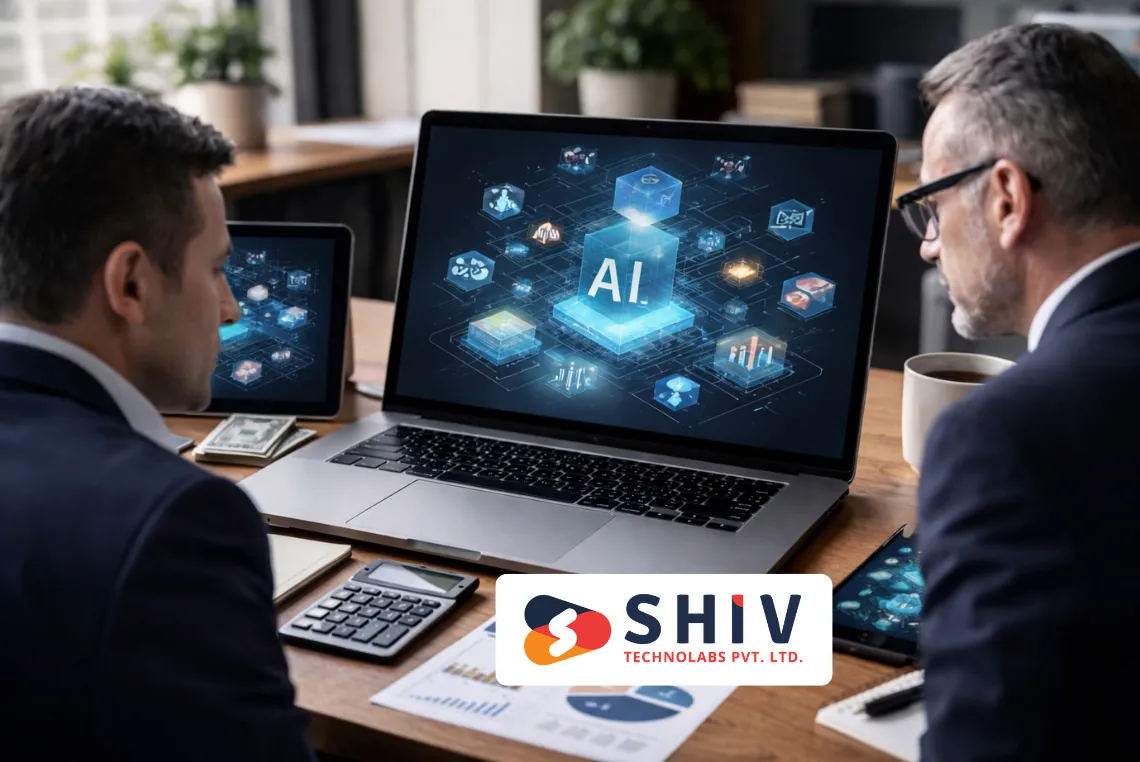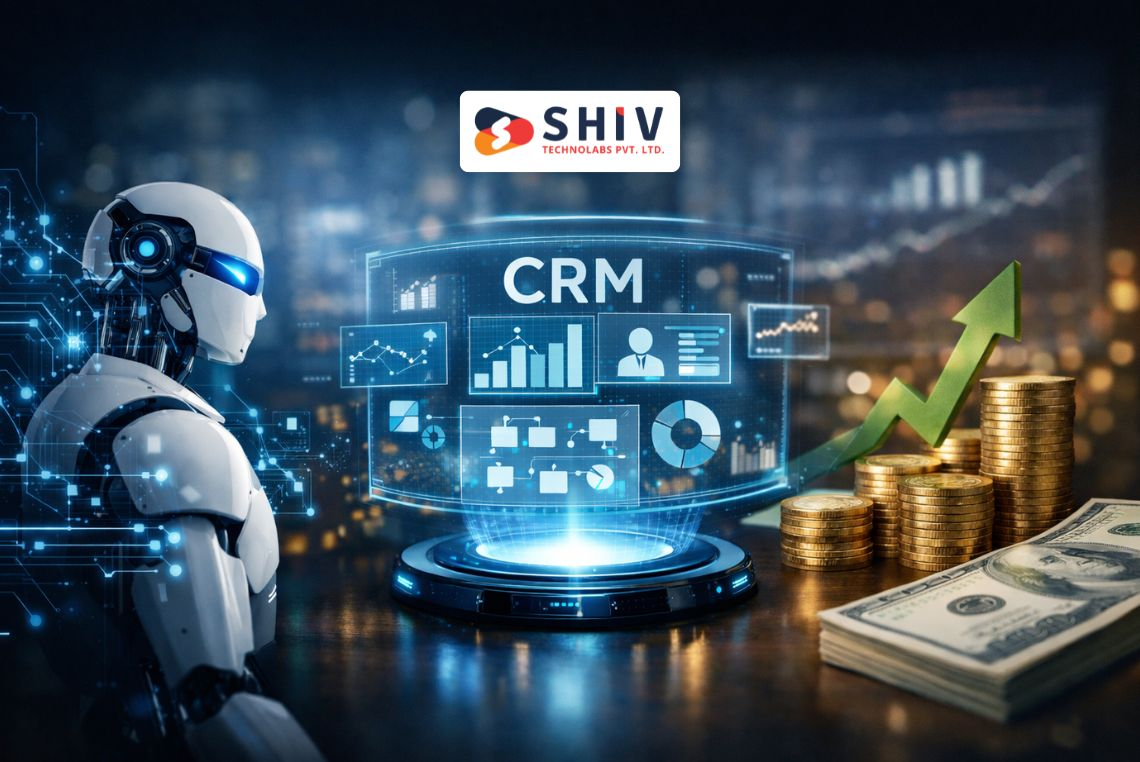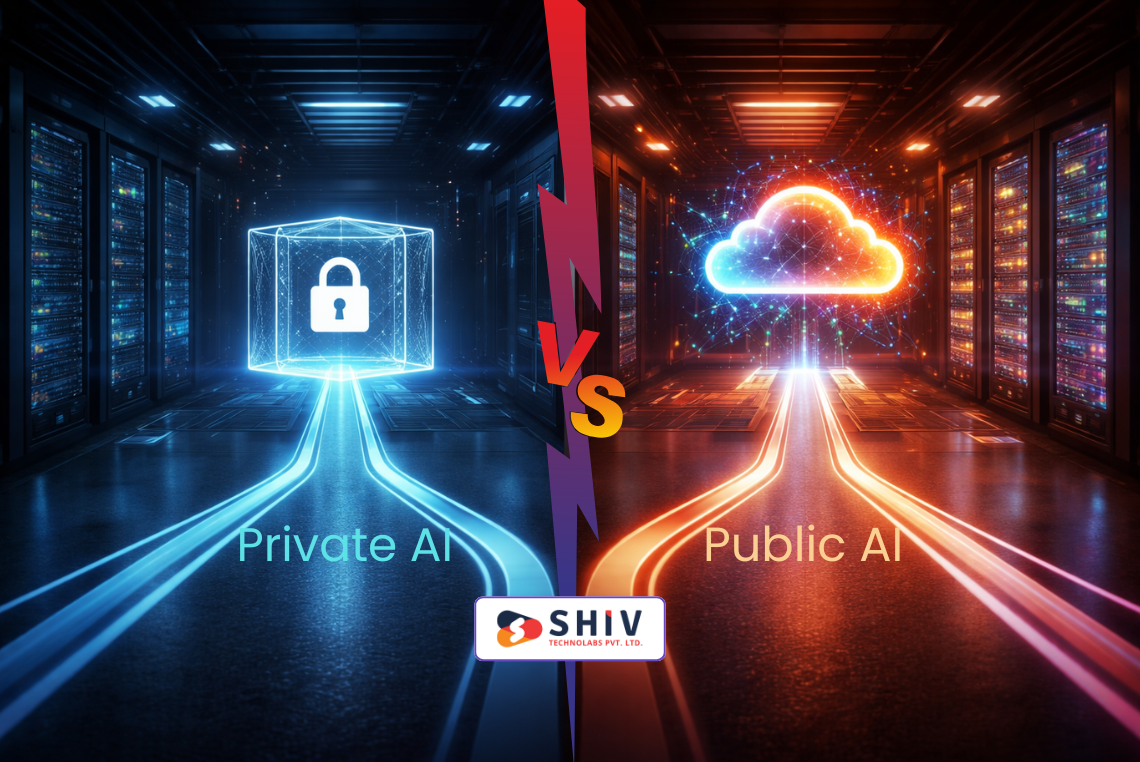Table of Contents
The combination of Enterprise Resource Planning (ERP) systems and artificial intelligence has opened unparalleled business opportunities to automate, emphasize decision making with data, and drive growth.
With increasingly more business leaders in today’s times familiar with the role of business transformation in AI-enabled ERP solutions, the combination of machine learning algorithms, predictive analytics, and smart automation is revolutionizing the manner in which business houses manage their core functions.
According to recent research by Gartner, 75% of organizations are expected to shift from piloting to operationalizing AI by 2024, with ERP systems being a primary focus area for AI integration.
Top 7 Ways AI is Improving Business Operations in ERP
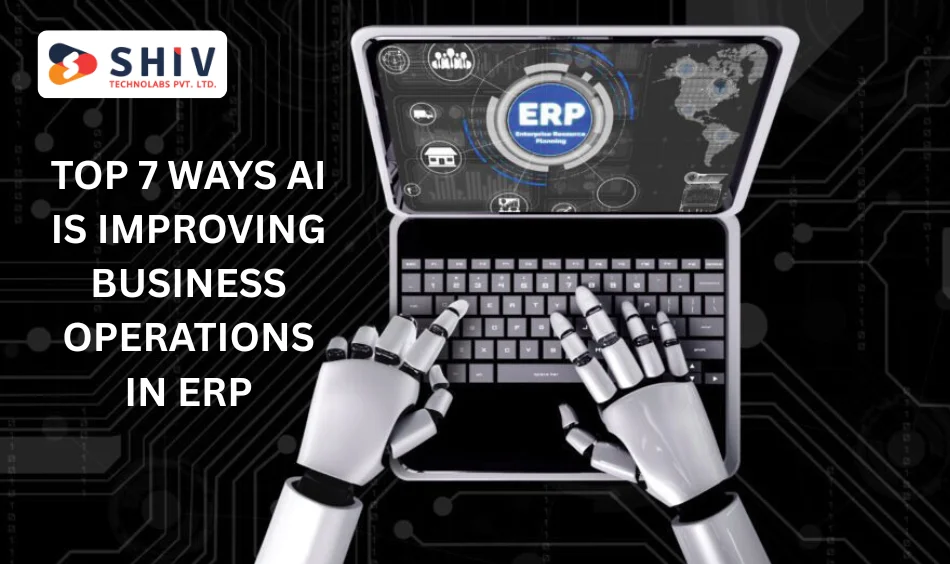
Below are the top 7 ways by which AI can improve Business Operations in ERP:-
1. Advanced Predictive Analytics and Forecasting
AI reduces manual effort and operational errors while improving responsiveness.
Intelligent Demand Planning
ERP-based AI communicates with sophisticated machine learning models that recognize patterns in history data, industry behavior patterns, and external demand drivers. In contrast to model-based forecasting with fixed models, AI in ERP systems learns from new input data in real-time and enhances forecasts to extremely high accuracy.
This enables organizations to smooth out levels of inventory, prevent stockouts, and maintain very low carrying costs. Research from McKinsey Global Institute reveals that companies implementing AI-powered demand forecasting earlier not only cut lost sales by up to 65%, but also reduced warehouse and administration costs by 5–10% and 25–40%, respectively.
Financial Forecasting Performance
Machine Learning in ERP is not applied to inventory management alone, but also used for entire finance forecasting. Cash flow patterns can be derived by AI, peak months identified, and finances forecasted in future years on the basis of various variables. Spares’ predictability stops CFOs and finance managers from making strategic decisions, making the best investments, and neglecting future finance risks.
2. Intelligent Process Automation
AI reduces manual effort and operational errors while improving responsiveness.
Streamlined Workflow
ERP automation with AI business processes, eliminating touch and errors. Intelligent automation is not redundant work; it self-learns to adapt automatically to varying business conditions and optimize business processes in real-time. For example, AI can dynamically adjust approval hierarchies based on transaction value, urgency, or available resources.
Intelligent Document Processing
Computer ERP software takes advantage of natural language processing technology and character recognition in order to facilitate automated document processing. Purchase orders, contracts, and bills are scanned by AI, which processes them automatically as soon as they are dispatched to stakeholders. Time is saved, and data entry errors are avoided.
3. Decision Support Systems in Real-Time
AI delivers real-time insights and smart suggestions for better decision-making.
Data-Driven Insights
ERP AI transforms raw, unanalyzed data into business intelligence that enables action. Artificial intelligence applications track real-time performance metrics and continuously look for outliers, alerting in real-time whenever action is necessary. Managers can react to instant problems and capitalize when issues arise.
Contextual Recommendations
ERP systems powered by AI provide context-relevant suggestions depending on the existing business situation, historic performance, and forecast models. Right from best price initiatives to suggesting alternate suppliers, from suggesting reorganization of resources, AI is an intelligent advisor that makes a human being an effective decision-maker.
4. Next-generation Customer Relationship Management
AI creates personalized and predictive experiences that improve customer loyalty.
Personalised Customer Experiences
Machine learning ERP solutions track customers’ behavioral patterns, purchase history, and interactions to develop detailed customer profiles. Organizations utilize such data to provide bespoke experiences, targeted marketing campaigns, and pre-emptive customer services that drive loyalty and retention.
Predictive Customer Analytics
ERP software can predict customer lifetime value, detect high-risk customers, and recommend retention activities. Using information on communication behavior, purchase frequency, and interaction, AI helps companies decide with whom to build relationships and how to maximize investment in revenue opportunity and customer satisfaction.
5. Supply Chain Optimization
AI strengthens supply chains through predictive and adaptive decision-making.
Smart Vendor Management
ERP systems based on AI continuously track the performance of suppliers in terms of on-time delivery, quality measures, price competitiveness, and financial health. Software based on machine learning continuously tracks vendor relationships and suggests best-of-class sources of supply using cost, quality, and risk parameters.
Dynamic Inventory Optimization
Predictive analytics in ERP allows dynamic stock management, which in its turn responds to changing marketplace dynamics. Suppliers’ lead times, seasonal demand patterns, warehousing costs, and market volatility are considered by AI systems while deciding appropriate levels of inventory for a particular group of products. The data gives optimal carrying costs under the promise of guaranteed stock availability as needed.
6. Enhanced Financial Management and Compliance
AI empowers financial planning while ensuring transparency and regulatory compliance.
AI-Based Monitoring of Compliance
AI-based ERP systems track business processes and transactions reactively for compliance. It has a reactive-based system for detecting probable non-compliance, identifying suspicious activity, and reporting on compliance. It is preventive and prevents regulatory fines and enforces business ethics.
Smart Financial Planning
Artificial intelligence in the ERP system is utilized to make financial planning with sophisticated modeling and scenario analysis. AI helps to model different scenarios of the company, calculated based on their fiscal implications, and best ways of achieving the desired fiscal objective set. The tool is most valuable in the budgeting process, capital planning, and strategic planning processes.
7. Proactive Risk Management
AI helps detect, assess, and neutralize risks before they escalate.
Early Warning Systems
ERP software AI employs end-to-end risk monitoring systems that can detect possible risks even before such risks impact the business operations. Operating data trends, finance, market data, and other external market data drive machine learning engines that forecast risks like supply chain interruption, cash flow deficiencies, or market decline.
According to Boston Consulting Group’s Enterprise Risk Management study, organizations that implement AI-powered predictive risk analytics in their ERP systems can already reduce the effort for an organization-wide ERP implementation by 20% to 40% compared to those using traditional risk management methods.
Artificial intelligence-driven ERP solutions can automatically implement risk management controls wherever and if ever pre-established thresholds are breached. For instance, if AI detects cash flow deficits in the pipeline, by default, it will rebaseline payment terms, ask for advances of credit lines, or trigger approval workflow for same-day fund requests.
The Future of AI-Powered ERP Solutions
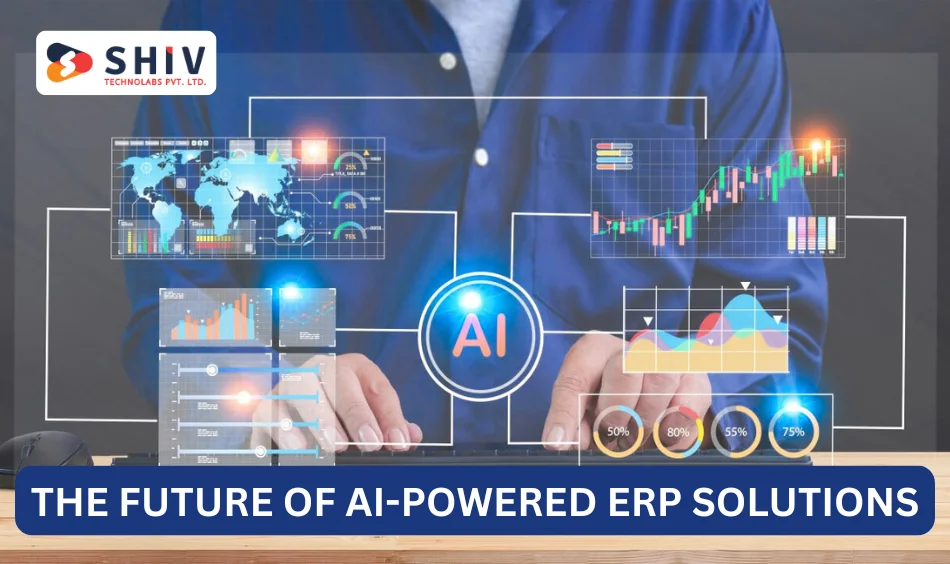
With the advancement in artificial intelligence technology, its implementation on ERP systems will be more enhanced and sophisticated. Those companies that implement AI-powered ERP systems in advance and are aware of the Top AI-powered ERP solutions are already in the lead in the data-driven business landscape that is emerging.
Conclusion
We at Shiv Technolabs understand the importance of planning, designing, technical knowledge, and strategic planning for implementing AI in existing ERP systems. Our experts provide ERP development services for an ERP development company with experienced skills to develop intelligent solutions based on your business requirements, with hassle-free integration with the current infrastructure.
ERP with Artificial Intelligence transformation is not so much about technology but rather a paradigm shift towards intelligent, astute business administration. Individuals who undergo this process will be in a position to weather the market storm, reach out to new opportunities, and attain long-term development within a competitive market.

